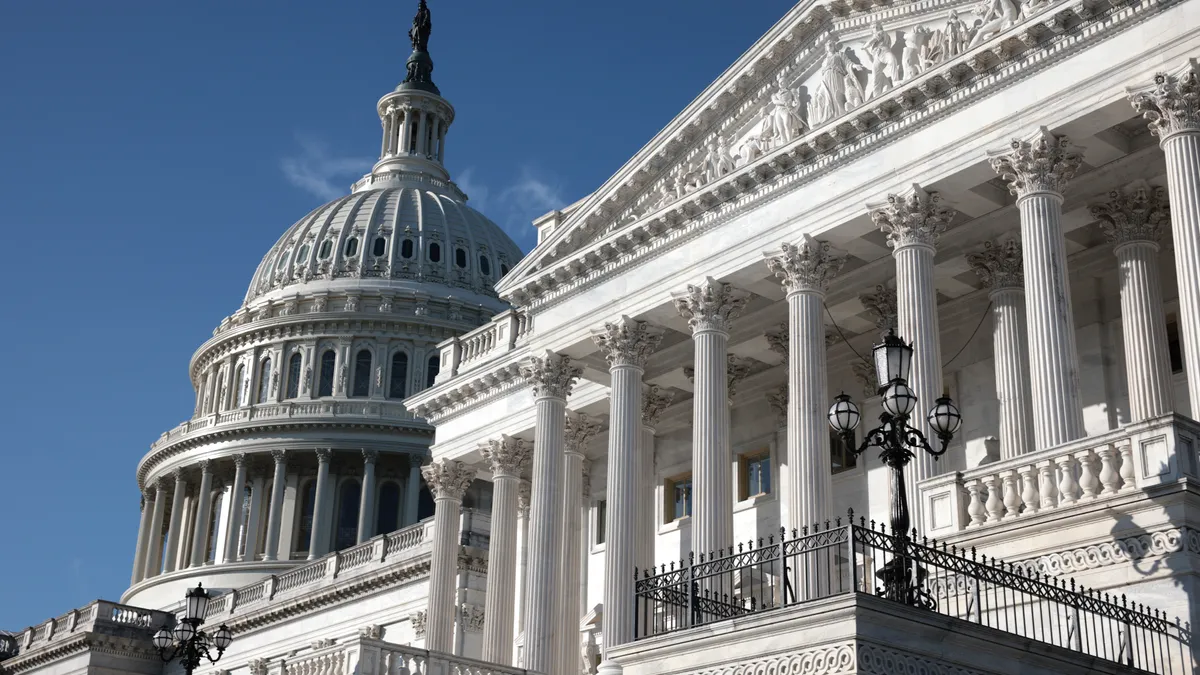The Senate on Thursday confirmed Adriana Kugler to a seat on the Federal Reserve’s board of governors, making her the first person of Latin descent to serve in that role. The move came less than 24 hours after the Senate confirmed Philip Jefferson to become the central bank’s vice chair and appointed Fed Gov. Lisa Cook to a full 14-year term.
Senators voted 88-10 to give Jefferson the central bank’s No. 2 post, which had been vacant since Lael Brainard left the Fed in February to join the White House as director of the National Economic Council.
Jefferson gained unanimous support from the Senate Banking Committee but won slightly fewer votes Wednesday than he did last year, when a 91-7 Senate tally gave him a Fed governor term that lasts through 2036. The vice chairmanship lasts four years.
Cook, by contrast, won more support Wednesday than when originally confirmed to her Fed post last year. The Senate voted 51-47 on Wednesday to give her a term that expires in 2038. Sen. Mike Rounds, R-SD, was the only Republican to back her. No members of the GOP voted in her favor in 2022, but Vice President Kamala Harris broke a deadlocked Senate, 51-50.
In Jefferson, the Fed gets a known quantity as its second-in-command. He has given his support to every interest-rate decision since joining the central bank, though he may be less hawkish on the multiagency proposal that would force the U.S.’s eight global systemically important banks to hold roughly 19% more capital, on average.
“My views on any proposed final Basel III endgame requirements for U.S. banking organizations will be informed by the potential impact on banking sector resiliency, financial stability and the broader economy stemming from the implementation," he said during a July open meeting about the proposal, according to American Banker. "I look forward to reading and digesting the comments we received from the public, which will inform my future decision on any eventual proposed final approvals.”
While not a full-throated rebuttal such as the one issued by Republican Fed Gov. Michelle Bowman — who argued there was “insufficient evidence” that the capital-requirements proposal “would justify the costs” — Jefferson’s stance leaves wiggle room for support, revision or negotiation.
At his confirmation hearing in June, Jefferson said he would “always be thinking about that trade-off between making banks more resilient and sound, and credit availability.”
“I think we have to deal with always grappling with the trade-offs between those two things in setting the right level of capital,” he said.
Jefferson becomes the second Black man to serve as Fed vice chair. Roger Ferguson held the role from 1999 to 2006.
In a statement Tuesday, Senate Banking Committee Chair Sherrod Brown, D-OH, said votes to confirm Jefferson — along with Cook and Kugler, who are women of color — would set up the Fed to “better reflect the country, and the people who make it work.”
“Our economy works better when we have people from diverse backgrounds, people who bring new ideas and different perspectives – not just the same old Wall Street, corporate consensus,” Brown said.
Brown’s Republican counterpart — Sen. Tim Scott of South Carolina, the panel’s ranking member — said in June that two of the three Fed nominees “seem more interested in having government serve their personal ideologies and their political priorities.” Scott didn’t name them, but they are assumed to be Cook and Kugler.
Republicans have long challenged Cook’s experience level with monetary policy. Sen. Bill Hagerty, R-TN, last year said Cook’s academic background — with its emphasis on the cost of racial disparities — “doesn’t seem related to the mission of the Federal Reserve.”














